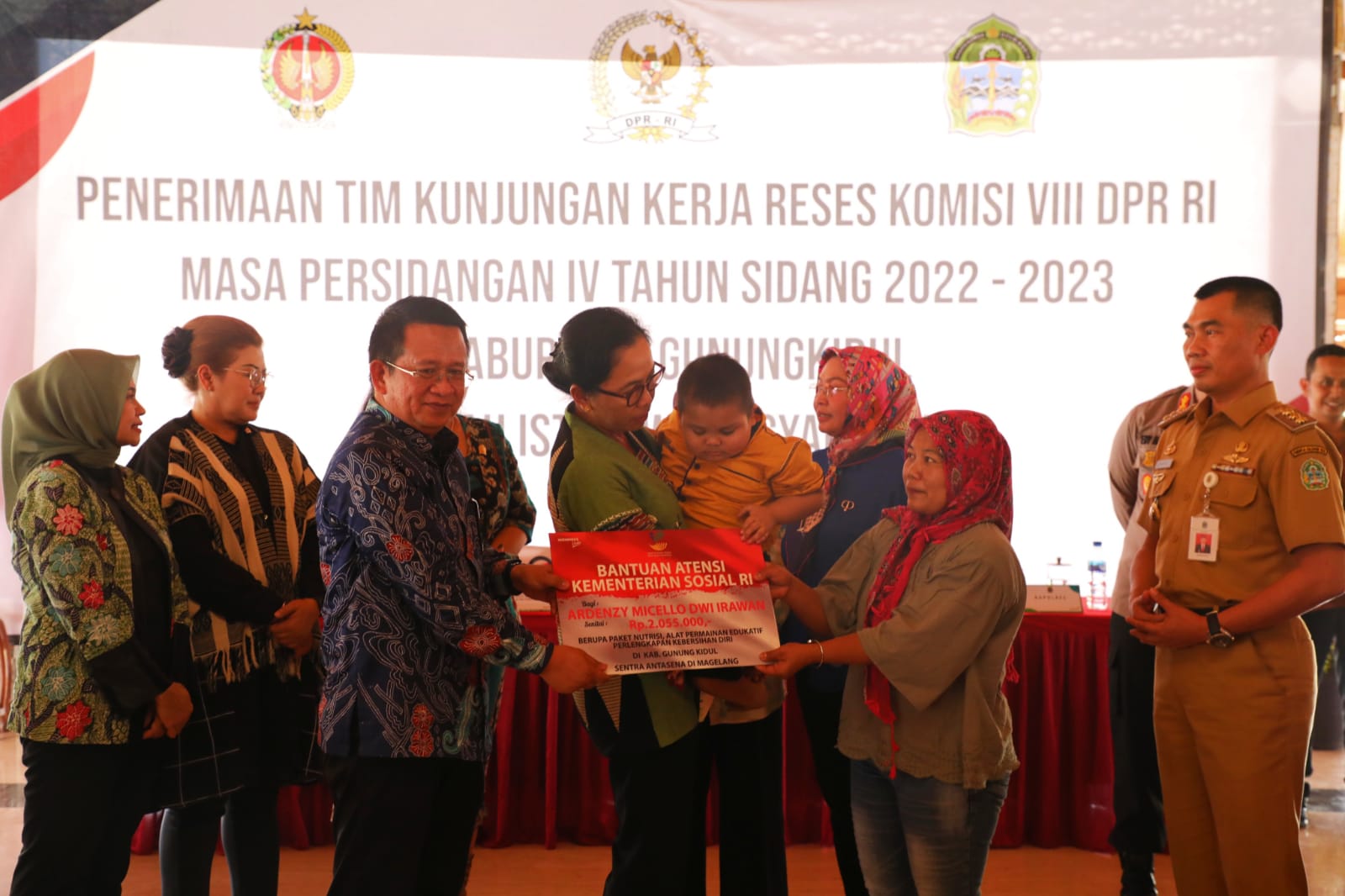GUNUNG KIDUL (14 May 2023) - The Family Hope Program (PKH) has proven to be an effective means of overcoming poverty in Indonesia. Launched in 2007, PKH is an instrument for improving living standards by providing access to education, health, and social welfare services.
Currently, PKH is providing conditional assistance to 10 million Beneficiary Families (KPM) in Indonesia. Wariyanti (43), one of the beneficiaries, has experienced the benefits of PKH.
According to her, PKH significantly reduces family expenses, particularly education. "It's very useful for paying tuition and buying uniforms and shoes," she explained when we met recently.
Wariyanti has three children, two of whom are still in school, attending vocational and primary schools, respectively. At each stage, Wariyanti received IDR 725,000. She received two components of assistance, namely for high school and elementary school-aged children.
In addition to PKH, the Wariyanti family receives a Non-Cash Food Assistance Program (BPNT) of IDR 200,000. The assistance she received was really valuable to her family. Wariyanti is a housewife. Sometimes this middle-aged woman receives orders for soto at her home. Meanwhile, her spouse, Sunyoto (48), works as a driver.
Another Gunung Kidul resident who received PKH is Suyatmi (34). Just like Wariyanti, Suyatmi also receives PKH and BPNT programs. She admitted that so far the assistance received had run smoothly. The assistance she received bought her necessities and nutritious food. This is in accordance with what she learned at the Family Capacity Building Meeting (P2K2), which she attends each month.
Apart from alleviating poverty, PKH aims to modify beneficiaries' health and education behaviors, as well as provide families with the potential to enhance their consumption expenditures.
"Every month, various topics are discussed. For example, how to be a good parent," she explained.
During the meeting, she was also taught how to manage household finances and prevent stunting. "For example, to provide nutritious food. The term is ‘4 sehat 5 sempurna’ or good and balanced nutrition. There are veggies and side dishes. However, the side dishes do not have to be fish; what is important is that they have protein, such as eggs. There is also milk," explained this woman with pre-school-aged children.
Suyatmi admitted that she felt the benefits of PKH for her family. Her husband works as a bricklayer, and she takes care of the house and occasionally helps in the fields.
"Thank God, the impact has significantly improved the economic situation of my family, which includes lower-middle-class residents. Thank God, it helped with school fees. It is extremely useful in everyday life," she stated.
Meanwhile, My Esti Wijayati, a member of Commission VIII DPR RI Yogyakarta Electoral District, stated that she will continue to supervise the implementation of the MoSA's program, which has a budget of IDR 78 trillion from the state. She appreciated MoSA for being quite swift in distributing assistance.
"We continue to bother MoSA, starting from building Integrated Welfare Houses, disaster handling, and clean water installations," she said during the Commission VIII Working Visit at the Gunung Kidul Cultural Park on Wednesday (10/5).
During 2023, MoSA distributed PKH assistance in Gunung Kidul Regency worth IDR 46.97 billion and the BPNT Program amounting to IDR 37.42 billion. Meanwhile, the ATENSI assistance disbursed was IDR 88 million, consisting of stunting prevention assistance and assistance for children, the elderly, and persons with disabilities. Moreover, there is also Disaster preparedness and management assistance worth IDR 568.8 million in the form of food, evacuation equipment, clothing, and family equipment.
 Bahasa
Bahasa
 English
English


